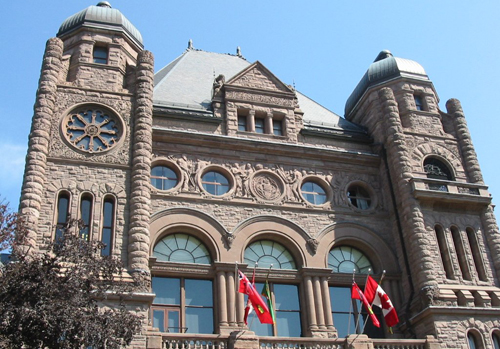TORONTO – Despite noticeable efforts to follow in their federal cousins’ footsteps, Ontario’s Greens lost ground in Thursday’s provincial election and were unable to win even one seat in the legislature.

An ambitious campaign that paraded their newly minted leader, Mike Schreiner, across the province failed to build on the momentum that brought the Greens eight per cent of the popular vote four years ago.
Instead the Greens, who rolled out a full slate of 107 candidates for the first time, saw their support eroded as the major parties cut into traditional Green party territory with environmental policies of their own.
The Greens’ share of the popular vote fell to three per cent, only a sliver more than the 2.8 per cent they received in the 2004 election.
Schreiner, a rookie politician who hoped to score the party’s first seat in Queen’s Park, floundered in Simcoe-Grey after taking on longtime Tory Jim Wilson. He ended his first full-blown election campaign a distant fourth, a drop from the third place the party earned in 2007.
Neither has deterred Schreiner, who points to small successes _ “record highs” in membership, volunteering and fundraising _ as proof the party’s message resonated with voters.
“I’m realizing there are barriers to us getting our message out,” Schreiner said in the last few days of the campaign as polls predicted the party’s sharp decline.
“It’s something we’re going to have to figure out,” he said. “We have to be more part of the mainstream conversation.”
Already hamstrung by an unknown leader and a lack of media attention, the Greens were dealt a crippling blow by the Liberals, whose push for a green economy likely siphoned off environmentally minded votes, observers said.
And with more parties targeting environmental issues, the Greens will face an uphill battle to keep themselves from fading into the fringe, they said.
“I just can’t see them going anywhere,” given that many of their ideas have been hijacked by other, more successful parties, said Henry Jacek, a political science professor at Hamilton’s McMaster University.
“(Premier Dalton McGuinty) has gone out of his way to appeal to Greens and environmentalists” with his green energy platform, he said.
At the same time, the Progressive Conservatives have derided the Liberals’ green sector programs and the attacks may have rubbed off on the Greens, who made sustainability a cornerstone of their platform, he said.
Widely viewed as a one-issue party, the Greens can’t afford to have their rivals encroach on their territory, said Harley d’Entremont, chair of the political science department at Laurentian University.
“To some extent, the Green party would be better off if none of the major parties showed any interest in the environment,” he said.
A few strategic missteps also played roles in throwing the party off course, experts said.
The Greens borrowed heavily from their federal counterparts’ playbook, targeting key ridings where they had done well in the past _ a move that helped bring federal leader Elizabeth May to the House of Commons this spring.
But they chose the wrong riding for Schreiner, pitting him against a strong incumbent when he should have set his sights on a vacant seat, Jacek said.
They also fought for a spot in the leaders’ debate, another tactic that bolstered the federal Greens when May faced off with her main rivals in the 2008 election.
Their efforts fell short and Schreiner was shut out of the Sept. 27 debate, a significant setback for his campaign and “a major disappointment,” he said.
What worked on the national stage fizzled in Ontario, largely due to Schreiner himself, who lacks May’s popularity, said Nelson Wiseman, a political science expert at the University of Toronto.
“You can adopt the same strategy, but the variables are completely different,” he said.
Some speculated the Greens may have been the victims of strategic voting, spurred by polls that suggested a tight race until the very end.
Voters who would otherwise support the Greens may have been scared into picking one of the major parties to avoid splitting the vote, d’Entremont said.
Others might simply have stayed home, he said. “If you accept that your party won’t win, there’s less motivation to vote.”



Comments